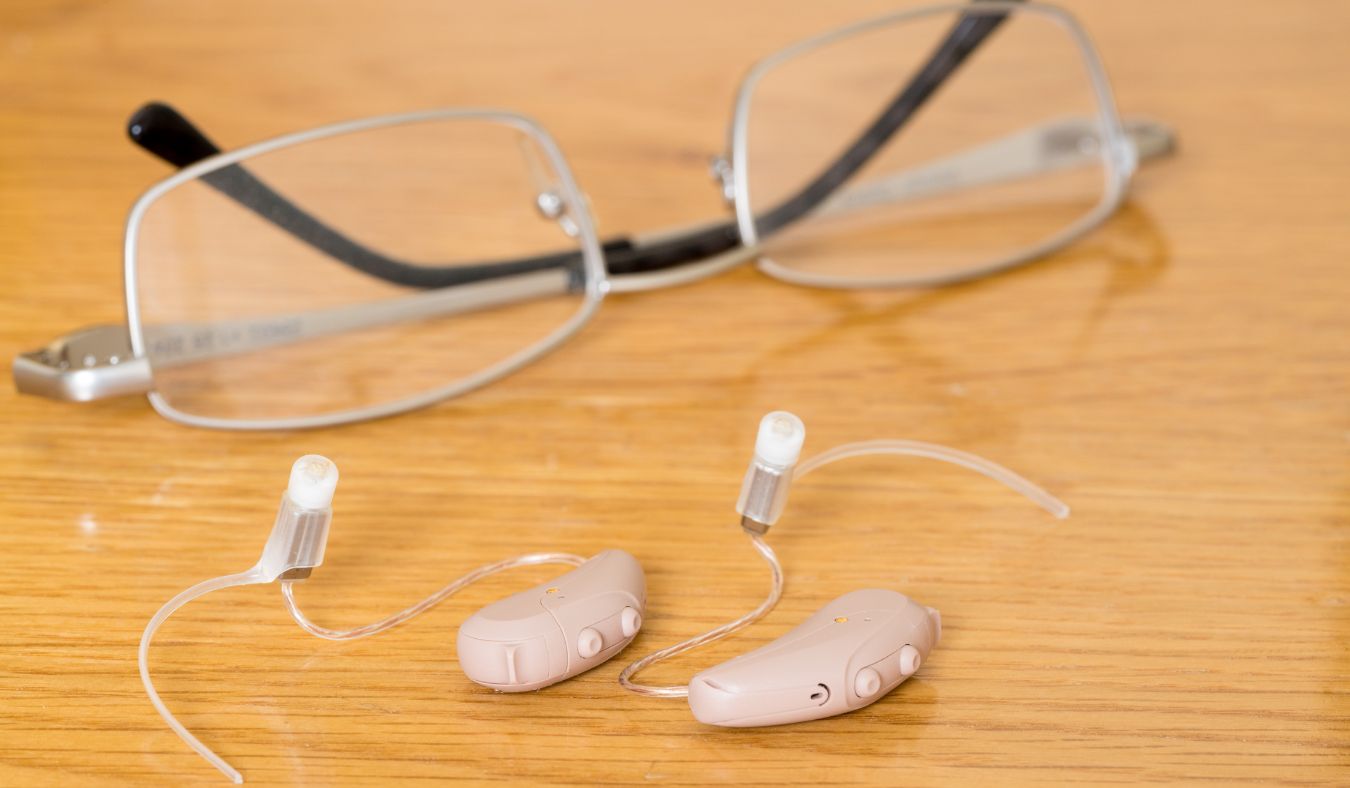The Impact of Hearing Aid Design on Wearer Comfort
When you’re choosing hearing aids, it’s easy to focus entirely

By: admin | October 30, 2024
Telehealth has become an invaluable resource in hearing care, providing a convenient and accessible way for individuals to receive essential services without the need for in-person appointments. This approach is particularly beneficial for those who may face mobility challenges, have demanding schedules or reside in remote areas where access an audiologist is limited. By utilizing telehealth, individuals can connect with audiologists who offer expert guidance, personalized assessments and adjustments tailored to their specific needs – all from the comfort of their own homes.
Telehealth creates a more relaxed environment for individuals who may feel anxious about visiting a clinic. This setting encourages open communication, allowing patients to discuss sensitive issues related to their hearing loss and its impact on their daily lives more comfortably. Whether you are a long-time hearing aid wearer or just beginning to explore your options, telehealth can enhance access to professional support. As technology continues to advance, telehealth offers an essential avenue for improving hearing health and overall quality of life for many individuals.
Telehealth refers to the use of digital technology to deliver health-related services and information remotely. It encompasses a range of applications, including virtual consultations, remote patient monitoring and access to educational resources. Through telehealth, patients can connect with healthcare professionals via video calls, phone calls or secure messaging, allowing for convenient and timely communication without the need for in-person visits.
This approach not only enhances accessibility for individuals with mobility challenges or those living in remote areas but also streamlines healthcare delivery, making it easier for patients to receive timely evaluations, follow-ups and ongoing support for their health needs. In the realm of hearing care, telehealth facilitates the delivery of specialized services that are crucial for managing hearing loss and optimizing the use of hearing aids.
Telehealth has been increasingly utilized across various medical fields, revolutionizing the way healthcare is delivered. One of the primary applications is in primary care, where telehealth enables physicians to conduct virtual consultations for routine check-ups, follow-up appointments and management of chronic conditions. This approach has proven beneficial, particularly during times of crisis, such as the COVID-19 pandemic, when in-person visits posed risks to both patients and healthcare providers. Telehealth allows for continuity of care while minimizing exposure to infectious diseases, ensuring that patients receive necessary medical attention without unnecessary delays.
In specialty care, telehealth has become an essential tool for managing conditions that require regular monitoring and consultation. For example, patients with mental health issues have benefited greatly from telepsychiatry, which provides them with convenient access to therapists and psychiatrists. This setup fosters a comfortable environment for discussing sensitive topics, breaking down barriers related to stigma and accessibility. Similarly, telehealth has found a place in dermatology, enabling specialists to evaluate skin conditions through high-resolution images shared by patients, allowing for prompt diagnoses and treatment recommendations without the need for a physical visit.
Additionally, telehealth has facilitated remote monitoring of patients with chronic illnesses, such as diabetes or heart disease. By using wearable devices that track vital signs and health metrics, healthcare providers can continuously monitor patients’ conditions and intervene when necessary. This proactive approach not only improves patient outcomes but also empowers individuals to take an active role in managing their health. Overall, telehealth’s versatility in the medical field demonstrates its potential to enhance patient care, streamline processes and improve access to essential health services.
Telehealth is making a significant impact in the world of hearing care. It’s changing how you interact with audiologists and manage your hearing loss.
This digital shift is not just about convenience. It’s about improving access to services and enhancing the quality of care. Telehealth technology can also help manage noise-induced hearing loss by providing online counseling and education on preventive measures.
One potential challenge might be feeling overwhelmed by the variety of digital platforms available for hearing services. A solution to this challenge is to seek advice from your audiologist. They can provide recommendations based on your specific needs and help you understand how to use these platforms effectively.
Another concern could be privacy and security when using digital platforms for hearing services. In today’s world where data breaches are all too common, this is a valid concern. To address this, it’s important to use trusted platforms that prioritize user security and comply with healthcare privacy laws.
While the emergence of digital platforms in hearing services brings its own set of challenges, there are solutions available to overcome them. With the right guidance and tools, these platforms can greatly enhance your experience with managing hearing loss.
Let’s consider recent advancements in telehealth for hearing. Modern innovations are reshaping the way you manage your hearing loss. One such advancement is the ability to have remote consultations with your specialist. This not only saves time but also eliminates the need for travel, making it a more convenient option. However, some might find it less personal than a face-to-face meeting and technical issues can sometimes disrupt the consultation.
Another significant development is the rise of digital tools designed to support your hearing health. These tools offer features like real-time feedback and personalized recommendations that can greatly enhance your experience with managing hearing loss. However, learning to use these tools can be a bit challenging, especially if you’re not tech-savvy.
While there are undeniable benefits to these advancements in telehealth for hearing, they also come with their own set of challenges. It’s all about finding what works best for you and adapting as necessary.
Remote consultations provide an efficient and convenient alternative to traditional in-office visits. They allow you to discuss your hearing concerns, receive professional advice and even get your hearing aids adjusted without leaving the comfort of your home.
However, like any new technology, remote consultations can pose challenges. You might encounter technical difficulties or feel unsure about discussing sensitive topics through a screen. But don’t worry! Audiologists are hearing specialists trained to guide you through this process and ensure a smooth transition. These remote services are designed with your convenience and safety in mind, offering an effective solution to manage your hearing health in today’s digital age.
The most evident advantage is the convenience it offers. You can now access professional advice and services from your home, reducing travel time and making healthcare more accessible. Additionally, telehealth allows for flexibility in scheduling appointments, giving you more control over your time.
Another significant benefit is the potential cost savings. Telehealth services often cost less than traditional in-person visits, making hearing care more affordable for many individuals. Plus, it also reduces incidental expenses like transportation costs or taking time off work. Essentially, using telehealth for your hearing needs can be a practical and efficient way to manage your hearing health.
It’s important to focus on the topic of privacy and security in telehealth for hearing. This is a vital aspect that deserves our attention, as it directly impacts your comfort and trust in using these services.
In the world of digital healthcare, protecting your personal information is paramount. Here are some measures you can take to ensure your privacy and security while using telehealth services for hearing:
Virtual consultations are a powerful tool in your hearing health toolkit. To maximize their benefits, preparation is key. Before the consultation, jot down any questions or concerns you have about your hearing loss. This will help you make the most of your time with the specialist. During the consultation, don’t hesitate to ask for clarification if something isn’t clear. This is your time to gain understanding and advice about managing your hearing loss effectively.
In addition to this, it’s worth noting another related topic: maintaining and troubleshooting your hearing aids at home. With guidance from your specialist during these virtual consultations, you can learn practical tips for taking care of these essential devices on a daily basis.
Incorporating digital transformation into your hearing health management is a process that involves staying informed, seeking professional guidance and practicing with new tools. With these steps, you can confidently adjust to this rapidly changing landscape and make the most of the benefits it offers.
When considering a telehealth appointment with your audiologist, it’s essential to prepare a list of questions to ensure you get the most out of your consultation. Start by asking about the technology requirements for the appointment. Inquire whether you will need a specific platform or application to connect and whether your audiologist provides technical support if needed. Understanding the setup will help alleviate any concerns you may have about the virtual visit and ensure a smooth experience.
Additionally, ask about the types of services that can be conducted remotely. Knowing whether your audiologist can perform adjustments, follow-ups or comprehensive assessments through telehealth will clarify what you can expect during your appointment.
Another crucial aspect to discuss is how telehealth can address your specific hearing needs. You might want to ask your audiologist how they plan to conduct assessments or evaluations in a virtual setting. This is particularly important if you are experiencing changes in your hearing or have concerns about your current hearing aids. Additionally, consider asking about the follow-up process after your telehealth appointment. Will you receive a summary of the consultation, and how will any necessary adjustments be communicated? Understanding the next steps can enhance your confidence in managing your hearing health and utilizing telehealth effectively.
Advancements in telehealth are not only making services more accessible and convenient, but they’re also enhancing the quality of care. With professional guidance and a willingness to adapt, you can harness these advancements to effectively manage your hearing loss.
To learn more about how telehealth can benefit your hearing health, don’t hesitate to reach out. Our team at Davis Audiology is here to guide you through this digital transformation and help you make the most of these new tools and services. You can reach our Greenville, Simpsonville or Spartanburg, SC offices at: (864) 810-6238

When you’re choosing hearing aids, it’s easy to focus entirely
By: admin | October 20, 2025

Summer heat affects hearing aids differently than you might expect. When
By: admin | July 29, 2025

Music plays different roles in people’s lives; it motivates you
By: admin | June 20, 2025
